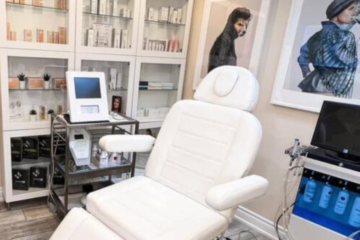Your body relies heavily on water to function optimally, so insufficient intake may result in health complications. Hydration plays an integral part of daily performance and wellness for everyone – whether they’re athletes pushing physical limits or people spending long hours sitting behind a desk. IV therapy has even proven useful as a fast hydration solution when results need to come quickly. In this article, we explore hydration’s importance, signs of dehydration, and strategies used by IV therapy patients when needed to keep optimal hydration for maintaining essential electrolytes balance.
The Science of Hydration
Water comprises nearly 60% of your body (adults), playing several vital roles for overall bodily well-being. First and foremost, it helps regulate body temperature – when we sweat it helps us cool off quickly! Furthermore, it facilitates digestion while clearing away waste through urine or sweat production. Aiming for eight 8-ounce glasses per day should meet most people’s daily water consumption needs but keeping an eye out on individual body requirements may require even more hydration for proper functioning and to stay hydrated!
Recognizing the Signs of Dehydration
Understanding and responding quickly to signs of dehydration is vital to staying well hydrated, which means listening to what your body tells you in terms of thirst signals or dry or sticky mouth feelings can indicate fluid loss, and thus dehydration can result in feelings of fatigue, lethargy, headache, and decreased cognitive functions. Ignoring symptoms could put your health at risk with kidney stones, urinary tract infections, and impaired cognitive performance all rising quickly as a result if left unattended. So, listen up promptly and address your hydration needs promptly so as not to lose ground to health concerns associated with water loss!
Hydration Strategies
To optimize hydration levels, employ several effective strategies. One effective method for doing so is drinking enough water throughout each day – carrying around a reusable water bottle can serve as a constant reminder to drink enough, with refills multiple times daily helping you stick with it and stay hydrated. Setting hourly reminders on your phone might also prove effective; also be sure to drink at least a glass before each meal as this not only contributes to better hydration levels but can aid with digestion!
Foods high in water content can greatly boost overall hydration. Cucumbers contain approximately 95% water, making them an excellent low-calorie snack; watermelon also boasts 92%, making it perfect for hot days; oranges provide additional nourishment besides being highly hydrating; eating an assortment of these foods can help meet fluid requirements without only turning to beverages as sources.
Water and hydrating food consumption is necessary, but sometimes you require additional immediate hydration. IV therapy is a medical process in which fluid is directly administered into your bloodstream to allow rapid absorption of water for the body’s operation. IV therapy may be particularly helpful to individuals recovering from illness or athletes post-workout, as well as anyone suffering severe dehydration; but always check with a healthcare professional first if this option might suit you best to avoid unnecessary problems.
Maintaining Electrolyte Balance
Hydration involves more than simply drinking enough water; it also means maintaining optimal levels of electrolytes – mineral salts found within our bodies that carry electric charges to help control muscle contraction and nerve signaling processes. Some key electrolytes include sodium, potassium, and magnesium; dehydration can alter these essential minerals causing cramped physical activity or extreme tiredness which indicates imbalanced electrolyte levels may exist in your system.
Reducing electrolyte loss after physical exertion involves replenishing them through foods rich in essential electrolytes such as bananas (high in potassium), nuts (rich in magnesium), and pickles (rich in sodium). Coconut water provides another great option to maintain electrolyte balance; packed full of essential electrolytes it serves as an ideal replacement for sugary sports drinks that help manage levels.
In Conclusion
Staying hydrated is integral for overall health and well-being, from improving physical performance to supporting mental clarity. By monitoring fluid consumption and employing various hydration strategies such as drinking lots of water and eating hydrating foods as well as understanding and using IV therapy when necessary, you can ensure you remain at peak performance levels. Stay hydrated!




